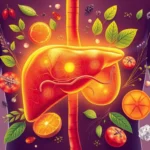Categories:
Are you tired of fad diets and quick fixes that promise fast weight loss but leave you hungry? You’re not alone. Millions of Americans are searching for the best way to lose weight and keep it off. In this guide, we’ll look at science-backed strategies and diet tips to help you lose fat and reach a healthy weight.
The first step in losing weight is understanding the basics. You need to create a caloric deficit by eating right and exercising regularly. It’s not just about eating less and exercising more. It’s about making lasting lifestyle changes for long-term weight loss.

Whether you want to improve your health, boost your confidence, or fit into your favorite clothes, this article has what you need. Remember, there’s no single way to lose weight that works for everyone. But by learning the principles of effective weight loss and using proven methods, you can reach your goals and change your life.
Ready to find out the most effective way to lose weight? Let’s explore the strategies that can help you lose fat and keep it off for good.
🔥 Unlock Your Weight Loss Potential with These Top Supplements!
Table of Contents
Key Takeaways
- Create a caloric deficit through balanced diet and exercise
- Focus on whole, nutrient-dense foods for sustainable weight loss
- Incorporate regular physical activity into your routine
- Practice mindful eating and portion control
- Set realistic goals and track your progress
- Make sustainable lifestyle changes for long-term success
- Seek support and education to enhance your weight loss journey
Understanding Weight Loss Fundamentals
Weight loss can be a tricky journey, but knowing the basics helps. Let’s dive into the science of losing weight and how you can make it work for you.
The Science Behind Weight Loss
Weight loss is all about energy balance. When you eat fewer calories than you burn, your body uses fat for energy. This is the key to losing weight. Exercise is important because it increases calorie burn and improves health.
Energy Balance and Caloric Deficit
To lose weight, you need a calorie deficit. This means eating fewer calories than your body uses. Focus on whole foods and eat more fruits and veggies. These foods are full of nutrients and keep you full, making it easier to reach your weight loss goals.
Role of Metabolism in Weight Loss
Your metabolism affects how fast you burn calories. While you can’t change it a lot, regular exercise and good nutrition help. This not only helps with weight loss but also prevents obesity and diabetes.
| Weight Loss Strategy | Benefit |
|---|---|
| Create calorie deficit | Essential for weight loss |
| Eat whole foods | Promotes satiety |
| Increase physical activity | Boosts calorie burn |
| Practice portion control | Manages calorie intake |
Even a small 5% weight loss can greatly improve your health. For a 90 kg person, that’s just 4.5 kg! By understanding these basics, you’re on your way to successful, lasting weight loss.
💊 Discover the Secret to Shedding Pounds Fast – Top Supplements Inside!
What is the Most Effective Way to Lose Weight
I’ve found that losing weight effectively involves a healthy diet, regular exercise, and lasting lifestyle changes. This method attacks excess weight from different sides, helping you keep the weight off for good.

Studies show that a low-carb diet can lead to more weight loss than a low-fat diet. On average, you might lose 10 pounds in six months. This diet helps lose fat while keeping muscle mass. It also improves heart health and artery function.
Eating more fruits, vegetables, beans, whole grains, and oily fish can help you lose weight and stay healthy. The Mediterranean diet, rich in these foods, is great for losing weight and improving heart health.
- Aim to lose 10% of your body weight as an achievable target
- Track your food intake using journals or apps
- Practice mindful eating to reduce overeating
- Increase fiber intake to enhance feelings of fullness
Physical activity is key. The NHS suggests doing 150 minutes of moderate activity each week. Strength training builds muscle, which burns more calories all day. Diet and exercise together work better than diet alone.
“Setting realistic goals and celebrating small achievements can help maintain motivation and adherence to your weight loss plan.”
For tailored advice on managing your weight, check out the NHS weight loss plan. By using these strategies, you’ll be on your way to a healthy weight and lower heart disease risk.
⚡ Boost Your Metabolism and Burn Fat with These Must-Have Supplements!
Creating a Sustainable Weight Loss Plan
Weight loss can be tough. That’s why I’m here to help you make a plan that works. We’ll set realistic goals, eat healthy, and get moving.
Setting Realistic Weight Loss Goals
Go for slow and steady. Losing 1 to 2 pounds a week is safe and doable. It avoids the ups and downs of quick weight loss. Watch your progress with measurements and how your clothes fit.
Developing Healthy Eating Habits
Eating well is key to lasting success. Add whole grains for fiber and nutrients. They keep you full and lower your diabetes risk. Mix lean proteins and veggies for a balanced meal that supports your goals.

Incorporating Physical Activity
Exercise is vital for losing and keeping off weight. The CDC says aim for 150 minutes of moderate activity a week. Try brisk walking, swimming, or cycling. Also, do strength training twice a week to boost your metabolism. Choose activities you love to make fitness fun.
By following these steps, you’re not just losing weight. You’re building healthy habits that protect your heart and reduce disease risks. Remember, slow and steady wins the race. With patience and consistency, you can reach your 10-pound weight loss goal and keep it off for life.
🥇 Top-Rated Weight Loss Supplements That Actually Deliver Results!
The Role of Nutrition in Weight Management
Nutrition is key for managing weight. I’ll explain the important parts to help you choose the right foods. This will help you reach your weight loss goals.
Understanding Macronutrients
Macronutrients are the main parts of our diet. It’s important to have the right mix of carbs, proteins, and fats for losing weight. Eating more protein can help you feel full and keep your muscles strong while you lose weight.
Importance of Portion Control
Controlling your portions is very important for managing weight. Eating fewer calories, about 1,000-1,500 a day, can help you lose weight. But, be careful of foods with added sugar. Drinking water instead of high-calorie drinks can also help a lot.

Meal Planning Strategies
Planning your meals wisely is a great way to lose weight. The Mediterranean diet, full of veggies and healthy fats, is good for losing weight and keeping your heart healthy. When you eat matters too. Some people do well with intermittent fasting or eating a big breakfast. The most important thing is finding a plan that works for you and that you can stick to.
Stay away from diets that promise quick weight loss. They often lead to gaining weight back. Instead, aim to lose 1-1.5 pounds a week. Also, make sure to exercise for at least 30 minutes every day for the best results.
If you need help with your diet, talk to a registered dietitian. They can create a plan that fits your needs and helps you lose weight in a healthy way.
🚀 Transform Your Body with These Powerful Weight Loss Aids!
Physical Activity and Exercise Guidelines

I want to lose weight, and I know you might too. The good news is that physical activity is key for losing weight. Let’s explore some exercise tips to help us lose those extra pounds.
If you’re looking to lose weight fast, aim for 150 minutes of moderate-intensity aerobic activity or 75 minutes of vigorous-intensity aerobic activity each week. This advice comes from the U.S. Department of Health and Human Services. Activities like brisk walking, light yard work, and casual biking are good for moderate intensity. For a more intense workout, try jogging, swimming laps, or playing competitive sports.
To really boost your weight loss, try to do 300 minutes of exercise per week. This amount is great for keeping weight off over time. The important thing is to find activities you enjoy, making it easier to keep up with your routine.
Don’t overlook strength training! Include muscle-strengthening exercises at least twice a week. This helps build lean muscle, which can boost your metabolism and help burn calories better.
If you’re trying intermittent fasting to lose weight, adding regular exercise can make a big difference. Just make sure to fuel your body well before and after your workouts.
The best way to lose weight is by combining diet and exercise. By following these guidelines and staying consistent, you’ll be on your way to reaching your weight loss goals.
For more detailed information on physical activity guidelines, visit the official website of the U.S. Department of Health and Human Services.
🌟 Say Goodbye to Stubborn Fat – Explore the Best Supplements Now!
Behavioral Strategies for Weight Loss Success
I believe the right behavioral strategies can greatly impact your weight loss journey. These methods help you stay on track and achieve long-term success. Let’s look at some effective ways to support your path to a healthier life through diet and exercise.
Self-Monitoring Techniques
Tracking your progress is key. I suggest tracking your food and physical activity daily. This keeps you accountable and helps you make better diet choices. Studies show that regular weighing can help you lose 1 to 2 pounds each week.
Environmental Management
Your surroundings affect your eating habits. I recommend removing unhealthy foods and using smaller plates. These simple steps can help you reach your weight loss goals without feeling deprived.
Building Healthy Habits
Creating lasting habits is essential for maintaining weight loss. Start by setting realistic goals, like being more active each day. Mix different goals, like weight loss, healthier eating, and more physical activity, to stay motivated.
| Strategy | Benefit | Implementation |
|---|---|---|
| Self-monitoring | Increased awareness | Daily food journal, weekly weigh-ins |
| Environmental changes | Reduced temptation | Remove junk food, use smaller plates |
| Habit formation | Sustainable lifestyle | Set varied goals, create routines |
Remember, these strategies work best with a balanced diet and regular exercise. By using these behavioral techniques, you’re setting yourself up for success in your journey towards a healthier life.
💡 Enhance Your Diet with These Scientifically Proven Weight Loss Supplements!
The Impact of Lifestyle Changes on Weight Loss
Making big changes in your lifestyle is key to losing weight safely. A good weight loss plan is more than just dieting. It’s about changing your daily habits. Let’s see how small, steady changes can lead to big results.

Start by eating a balanced diet. Include lots of veggies, fruits, lean proteins, and whole grains. These foods are good for you and keep you full longer. Try to eat less of processed foods, sugary drinks, and fatty meats to cut calories without feeling hungry.
Exercise is also very important in a weight loss plan. Try to do at least 30 minutes of physical activity every day. Begin with small steps and slowly do more. Even little changes, like taking the stairs, can help a lot.
Don’t forget the importance of sleep in your weight loss journey. Adults need at least 7 hours of sleep each night. Not getting enough sleep can mess with your hunger hormones, making you want to eat more.
Lastly, manage your stress well. High stress can stop you from losing weight. Try meditation, yoga, or deep breathing to keep stress down.
By making these lifestyle changes, you’re more likely to lose weight in a way that lasts. It’s not about losing a lot of weight fast. It’s about making changes that are good for your health for the long term.
🔍 Searching for Effective Weight Loss Solutions? Check Out These Supplements!
Understanding the Role of Diet Composition
Diet composition is key for losing weight and improving health. I’ll explain different diets to help you pick the right one for you.
Low-Calorie vs. Low-Fat Diets
Low-calorie diets cut down on total calories. Low-fat diets, on the other hand, limit fat. Studies show both can help with weight loss.
A 2009 study in the New England Journal of Medicine found similar weight loss. Diets with different macronutrient ratios led to an average weight loss of 8.6% of initial body weight over two years.
Plant-Based Food Options
Plant-based diets are great for quick weight loss. They’re often lower in calories and higher in fiber, making you feel full. A Mediterranean-style diet, full of fruits, vegetables, and healthy fats, promotes steady weight loss and better heart health.

Protein Requirements
Enough protein is key to keep muscle mass while losing weight. A 2010 study showed diets with more protein (25% of calories) were better for weight maintenance than those with less protein (12% of calories).
| Diet Type | Average Weight Loss | Key Benefits |
|---|---|---|
| Low-Calorie | 8.6 lbs (1 year) | Flexible food choices |
| Low-Fat | 7.0 lbs (1 year) | May improve heart health |
| High-Protein | 11.7 lbs (1 year) | Better muscle preservation |
The best diet is one you can keep up with for a long time. Mix your diet with exercise for the best results. For tailored advice, talk to a registered dietitian or check out the Academy of Nutrition and Dietetics.
📈 Accelerate Your Fat Loss Journey with These Top Picks!
Safe and Effective Weight Loss Rates
Research shows that losing 1 to 2 pounds per week is the safest and most effective way. This method helps you shed excess weight and boosts heart health. Fast weight loss might seem appealing, but it’s not healthy for your body.
For lasting weight loss, focus on a balanced eating plan and slow lifestyle changes. The NHS Weight Loss Plan is a 12-week program that helps you set goals and plan meals. It also encourages more physical activity, even just 10 minutes a day, to aid in weight loss and better health.

When planning your weight loss, keep these points in mind:
- Set realistic goals, aiming for 5% to 10% of your starting weight within 6 months
- Choose a program overseen by certified health professionals
- Look for ongoing support and monitoring options
- Incorporate a plan for maintaining weight loss long-term
Remember, losing weight slowly is not just about shedding pounds. It also lowers your risk of diseases like type 2 diabetes and high blood pressure. By focusing on steady progress and sustainable habits, you’re more likely to achieve lasting results and improve your overall health.
🛒 Ready to Achieve Your Dream Body? These Supplements Can Help!
Maintaining Weight Loss Long-Term
Keeping weight off after losing it can be hard. It takes ongoing dedication to healthy habits. Let’s look at ways to prevent weight gain and make lasting lifestyle changes.
Preventing Weight Regain
Staying active is key to avoiding weight gain. The National Weight Control Registry says 94% of successful maintainers increased their activity. Adults should aim for 40 minutes of moderate to vigorous exercise 3-4 times a week.
This can be brisk walking or taking the stairs. It’s a simple way to stay active.
Lifestyle Adjustments
Adopting a Mediterranean diet is a smart choice for long-term health. It focuses on fruits, vegetables, whole grains, and lean proteins. When you’re not actively losing weight, you can add about 200 calories of healthy, low-fat foods to your diet.
Support Systems
A strong support network is essential. In fact, 55% of people who kept their weight off had support. This could be family, friends, or a health care provider.
Regular check-ins with a support group or professional can keep you motivated and on track.
| Strategy | Implementation | Benefit |
|---|---|---|
| Physical Activity | 40 minutes, 3-4 times weekly | Burns 1,500-2,000 calories/week |
| Dietary Adjustment | Add 200 calories of healthy foods | Sustainable weight maintenance |
| Support System | Regular check-ins | Accountability and motivation |
Remember, keeping weight off is a lifelong journey. By using these strategies, you’re more likely to keep those pounds off and enjoy the health benefits of your weight-loss journey.
💥 Break Through Plateaus with These Game-Changing Weight Loss Supplements!
Common Weight Loss Challenges and Solutions
Weight loss can be really tough. You’re not the only one facing these hurdles. Let’s look at some common problems and find ways to overcome them.
Weight changes can be confusing. Sometimes, the scale might show small changes due to water or food. But, remember how your clothes fit and how you feel.
Getting the right calorie count is hard. Many of us guess wrong. Try keeping a food diary to understand your eating better. This helps you choose better foods like plant-based options and whole grains.
Exercise is important, but don’t overdo it. Too little won’t help, and too much can burn you out. Find fun activities and stick to them.
- Packaging may vary – New look, with the same trusted quality
- Gold standard 100% whey blend – 24 grams blended protein consisting of whey protein isolate, whey protein concentrate, a…
- Over 5 gram of BCAAs – Help build lean and strong muscles with naturally occurring BCAAs
Protein and fiber are your friends in weight loss. They keep you full and help keep your muscles. Eat lean meats, legumes, and veggies.
| Challenge | Solution |
|---|---|
| Emotional eating | Practice mindfulness, find stress-relief activities |
| Plateaus | Adjust eating patterns, try fasting for weight loss |
| Unrealistic goals | Set achievable milestones |
| Lack of support | Join a weight loss community or program |
Remember, lasting weight loss is about making healthy habits. By tackling these challenges, you’ll be more likely to reach your goals and keep going.
Conclusion
I’ve shared key strategies for successful weight loss in this guide. If you need to lose weight, focus on creating a caloric deficit. This can be done through smart food choices and regular aerobic exercise.
Eating nutrient-dense foods like fruits, vegetables, whole grains, and lean proteins is key. Avoiding empty calories is also important for fat loss.
Remember, successful weight loss isn’t just about diet. Aim for 150 minutes of moderate exercise weekly. Incorporate mindful movement into your daily routine.
Keeping a food and weight diary can help you track progress and stay accountable. Practice portion control by comparing food portions to everyday objects. Use your fist to measure 1 cup of vegetables.
Managing stress and staying positive are vital. Weight loss is a gradual process requiring persistence. Seek social support through friends, family, or online communities to stay motivated.
By addressing these risk factors and making sustainable lifestyle changes, you’re setting yourself up for long-term success. For more detailed information on effective weight loss strategies and support, visit the official website of the Centers for Disease Control and Prevention at CDC Healthy Weight Loss.
🏆 The Ultimate Guide to the Best Weight Loss Supplements Available!
FAQ
For “What is the Most Effective Way to Lose Weight? : Diet Tips to Help You Lose Fat”
Q: What is the most effective way to achieve healthy weight loss?
A: The most effective way to achieve healthy weight loss is through a combination of diet and exercise rather than relying on quick fixes. Aim to lose 0.5 to 1 kg per week through a balanced diet rich in fruit and vegetables, lean proteins, and whole grains, while reducing processed foods, refined grains like white bread and white rice, and added sugars. Regular physical activity not only helps you lose excess weight but also maintains muscle mass and improves overall health. This sustainable approach addresses the root causes of being overweight and prevents the weight regain commonly associated with fad diets or rapid weight loss methods.
Q: How does intermittent fasting work for weight loss?
A: Intermittent fasting works by restricting when you eat and drink rather than what you eat. Common approaches include the 16:8 method (fasting for 16 hours and eating during an 8-hour window) or the 5:2 method (eating normally five days and restricting calories two days). This way of eating can help reduce overall calorie intake, improve insulin sensitivity, and potentially increase fat burning. Research, including systematic review and meta-analysis studies, suggests that intermittent fasting can be as effective as traditional calorie restriction for weight loss while providing additional health benefits. However, it’s not suitable for everyone, particularly those with certain health conditions, and should be approached under guidance.
- CLEANER INGREDIENTS: 21g of Organic plant based protein and 1g sugar. Our protein blend contains Organic peas, brown ric…
- HIGHER STANDARDS: This product is vegan, gluten-free, kosher, made without soy ingredients & Non-GMO. You also won’t fin…
- USDA ORGANIC & CERTIFIED PLANT-BASED: To ensure we are delivering on high-quality products, we use third parties to veri…
Q: What role does fat play in a weight loss diet?
A: Contrary to outdated beliefs, dietary fat plays an essential role in a nutritious diet for weight loss. Healthy fats from sources like avocados, nuts, seeds, and olive oil help you feel satisfied, support hormone production, and allow absorption of fat-soluble vitamins. The key is choosing unsaturated fats while limiting saturated and trans fats, which are associated with weight gain and increased risk of heart disease and type 2 diabetes. Fat is calorie-dense (9 calories per gram), so portion control remains important. Many people who lose weight successfully include moderate amounts of healthy fats in their eating plan rather than following extremely low-fat diets.
Q: How does obesity affect overall health beyond appearance?
A: Obesity significantly impacts health beyond appearance by increasing the risk of serious health conditions including heart disease and type 2 diabetes, stroke, sleep apnea, certain cancers, and joint problems. It places extra strain on the cardiovascular system, affects hormone regulation, and often leads to chronic inflammation. Mental health can also suffer through increased rates of depression and anxiety. The health system bears enormous costs treating obesity-related conditions. However, even modest weight loss of 5-10% of body weight can dramatically reduce these risks and improve quality of life, highlighting why sustainable weight management approaches are crucial for overall health.
Q: What makes weight-loss maintenance so challenging?
A: Weight-loss maintenance is challenging for several biological and psychological reasons. When you lose weight, your metabolism slows down, hunger hormones increase, and your body physiologically tries to return to its previous weight. Additionally, many people who lose weight quickly through restrictive diets haven’t developed sustainable eating habits or addressed emotional eating patterns.
Social factors also play a role, as our environment is filled with calorie-dense foods and opportunities for sedentary behavior. Successful long-term maintenance typically requires ongoing vigilance, regular physical activity, continued dietary awareness, social support, and addressing psychological factors associated with weight management. This explains why a gradual approach focused on sustainable diet changes is more effective than rapid weight loss methods.
Q: How important is diet versus exercise for weight loss?
A: While both diet and physical activity are important for weight management, diet typically plays a more significant role in weight loss. The saying “you can’t outrun a bad diet” has truth to it—it’s much easier to consume calories than to burn them through exercise. For example, a 30-minute run might burn 300 calories, which can be quickly replaced by a single pastry. However, exercise helps maintain muscle mass during weight loss, improves metabolism, enhances mood, and is critical for long-term weight maintenance. The most successful approach combines a moderate calorie reduction through a balanced diet with increased physical activity, creating both a calorie deficit and metabolic advantages that support sustainable weight management.
- Premium Whey Protein Isolate – Loaded with the highest quality protein sources, Animal Whey delivers a potent punch of 2…
- Gentle on the Gut, Big on Results – Packed with enzymes to optimize nutrient absorption and digestion. Experience the di…
- Amazing Taste Profile – Who said healthy can’t be delicious? Animal Whey boasts irresistible flavors that are easy to mi…
Q: What constitutes a balanced diet for effective weight loss?
A: A balanced diet for effective weight loss includes a variety of whole foods in appropriate proportions while creating a modest calorie deficit. It should feature plenty of vegetables and fruits (at least 5 servings daily), lean proteins (fish, poultry, legumes, tofu), whole grains instead of refined grains, healthy fats in moderation, and limited added sugars and highly processed foods. Portion control remains important, as even nutritious foods can contribute to weight gain when consumed in excess. This approach ensures you receive necessary nutrients while reducing calories, helping to prevent nutritional deficiencies often associated with more restrictive weight loss diets. A balanced eating plan is also more sustainable long-term compared to extreme or fad diets.
Q: Are fad diets ever a good approach to weight loss?
A: Fad diets rarely offer a good approach to sustainable weight loss, despite their enticing promises to help you lose weight quickly. While they may produce short-term results, about 80% of people who lose weight through highly restrictive diets regain it, often plus additional weight. Many fad diets eliminate entire food groups, potentially creating nutritional deficiencies, or force unsustainable eating patterns that can’t be maintained long-term.
Some may even harm metabolism or encourage disordered eating behaviors. Instead of following the latest trend, focus on gradual, sustainable changes to your eating habits and physical activity levels. The best “diet” is one that provides balanced nutrition, addresses your personal health needs, and can be maintained as a lifestyle rather than a temporary fix.
Q: How does a low-calorie diet affect metabolism and heart health?
A: Very low-calorie diets (typically below 1,000-1,200 calories daily) can negatively impact both metabolism and heart health if not properly managed. When calorie intake drops dramatically, the body enters a protective mode, slowing metabolism to conserve energy and breaking down muscle tissue for fuel. This metabolic adaptation makes weight maintenance harder after the diet ends.
Regarding heart health, extreme calorie restriction can lead to heart muscle loss, electrolyte imbalances, and irregular heartbeats in some cases. However, moderate calorie reduction (creating a 500-750 calorie daily deficit) combined with physical activity can actually improve heart health by reducing blood pressure, improving cholesterol levels, and decreasing inflammation. Always consult healthcare providers before starting any significant dietary changes, especially for those with existing heart conditions.
Related Articles:
- 10 Great Meal Replacement Shakes to Try This Season
- Does Drinking Rice Water Help You Lose Weight? Rice Water for Weight Loss
- 10 Must-Try Effective Fat Burners for a Healthier You This Year
- Can i Lose Weight in 2 Weeks? | Effective Diet Tips for Weight Loss Success
- 10 Surprising Appetite Suppressants to Help You Stay on Track
- How Many Calories Should I Eat to Lose 2 Pounds a Week? Weight Loss Tips
Our Partners: CSKDesignCrafts.com – DesignersReport.com – LifeCraftCentre.com
This post may contain affiliate links which means I may receive a commission for purchases made through links. There is no additional charge to you! Thank you for supporting my blog so I can continue creating free content each week!











